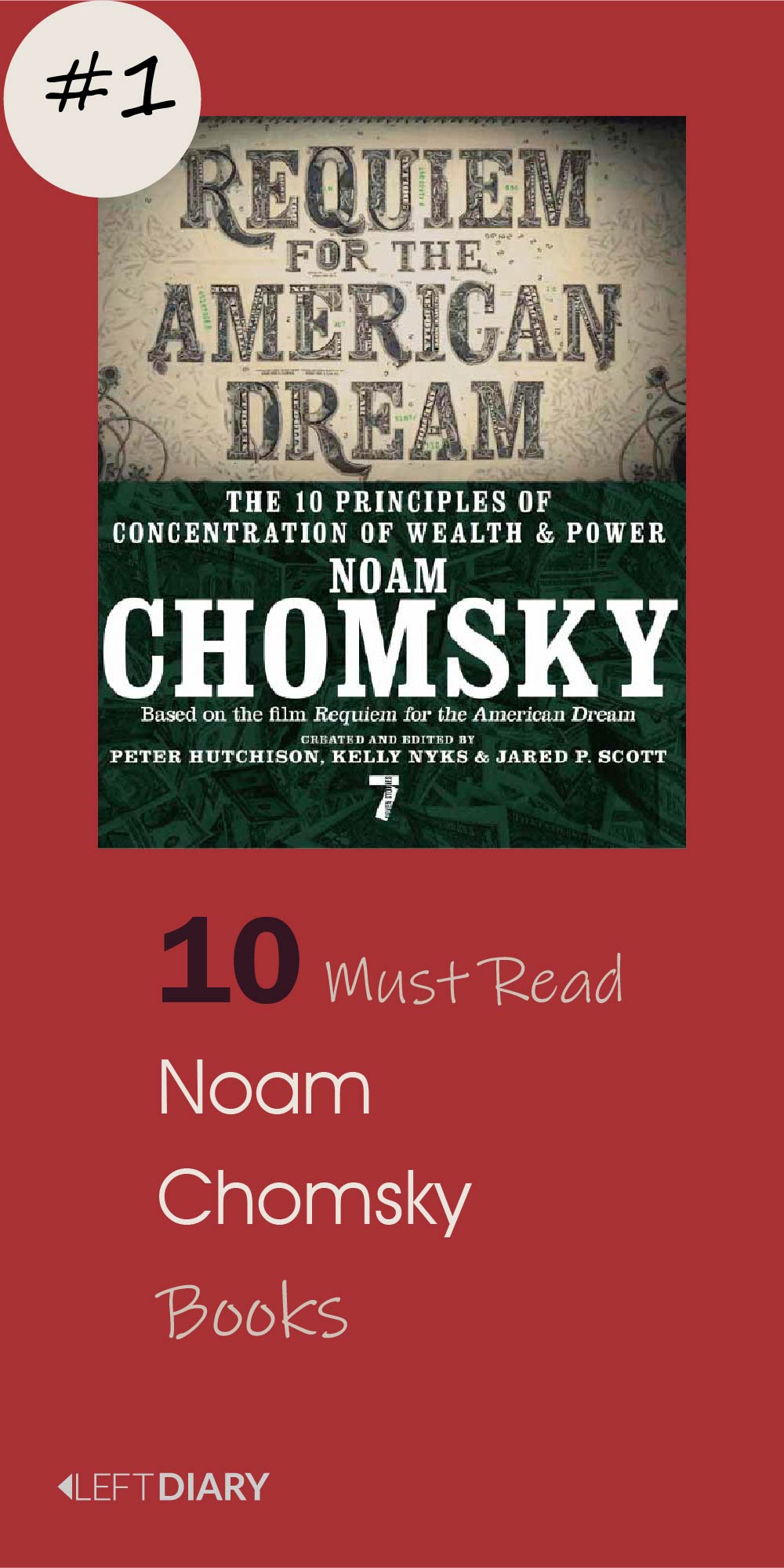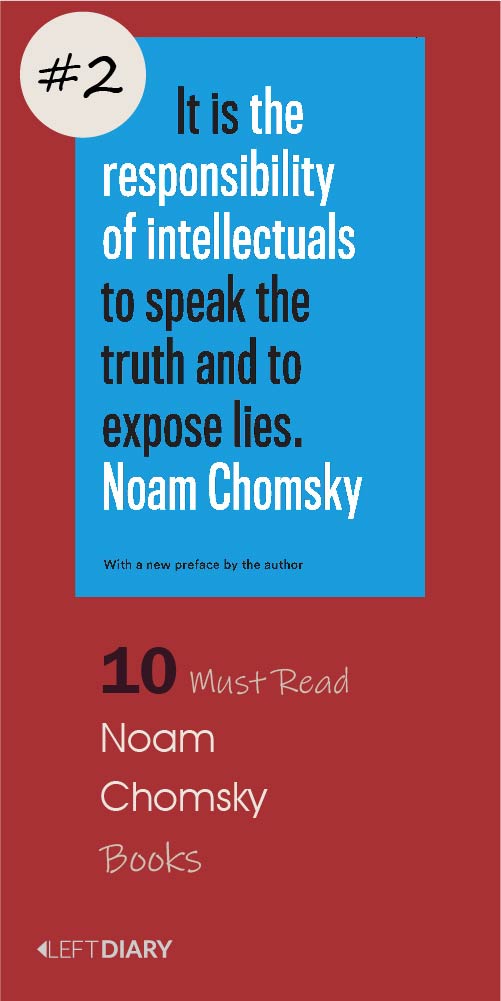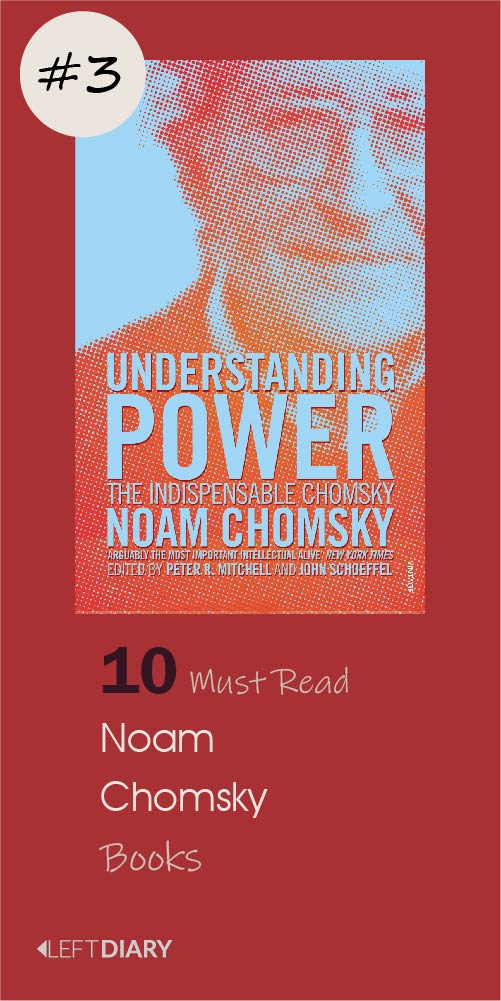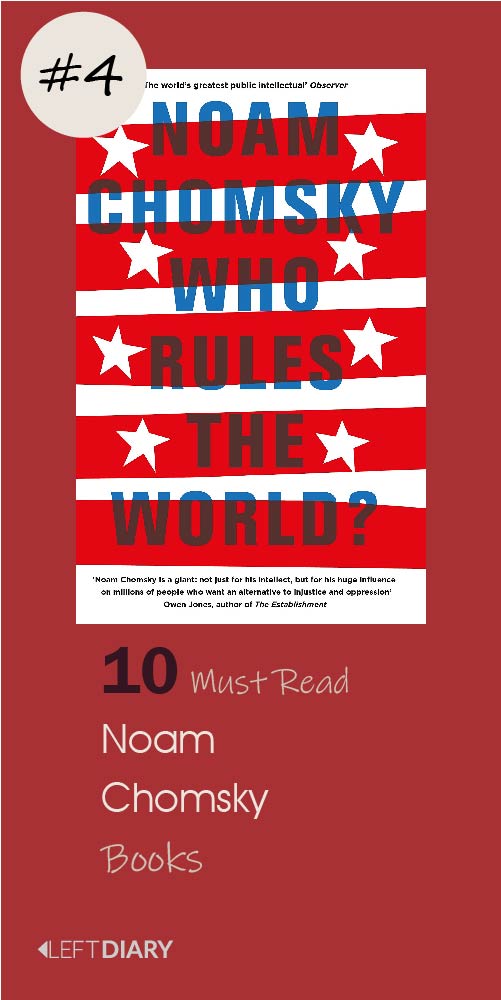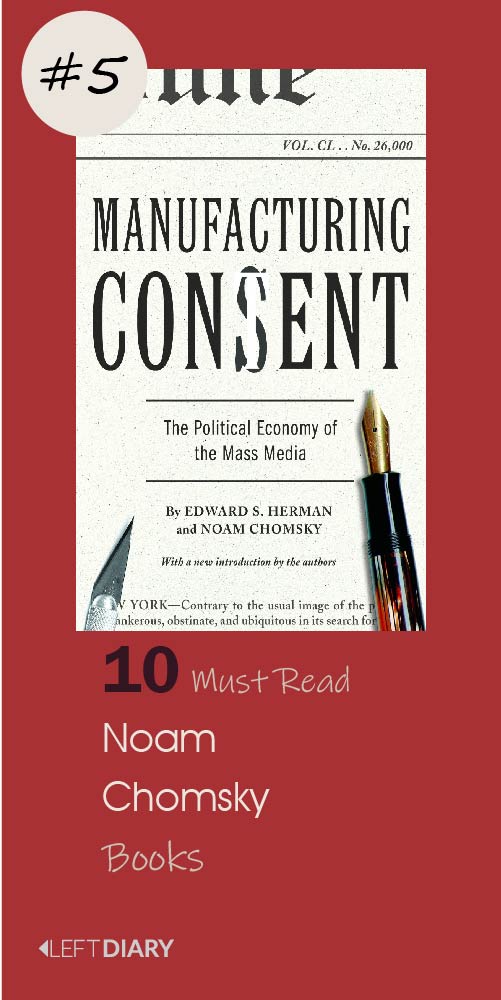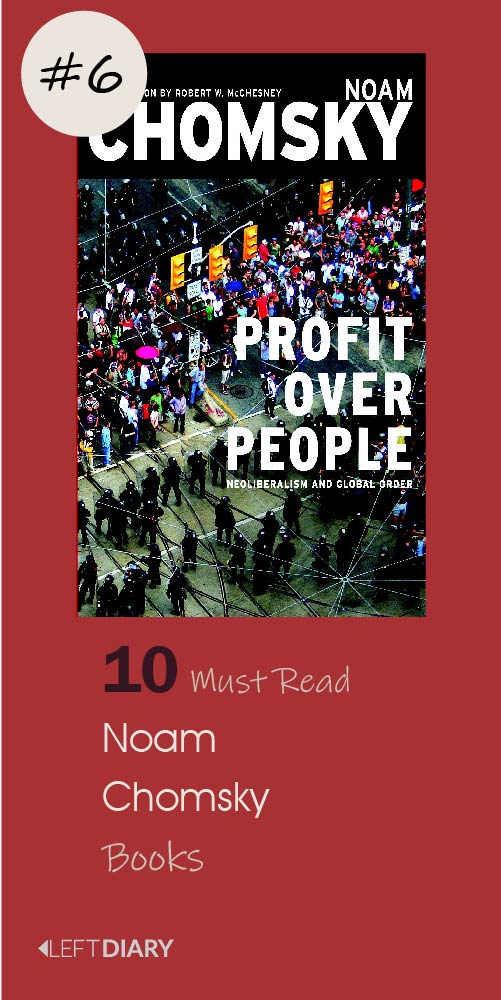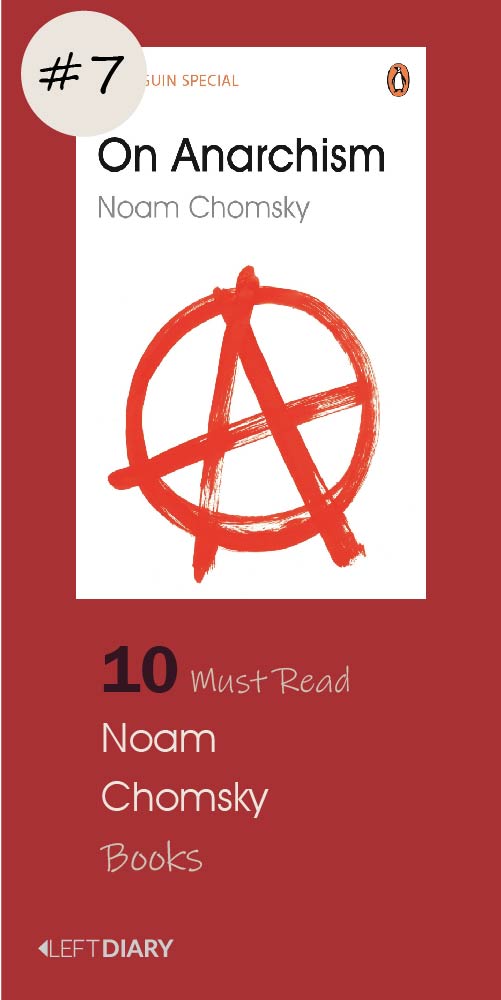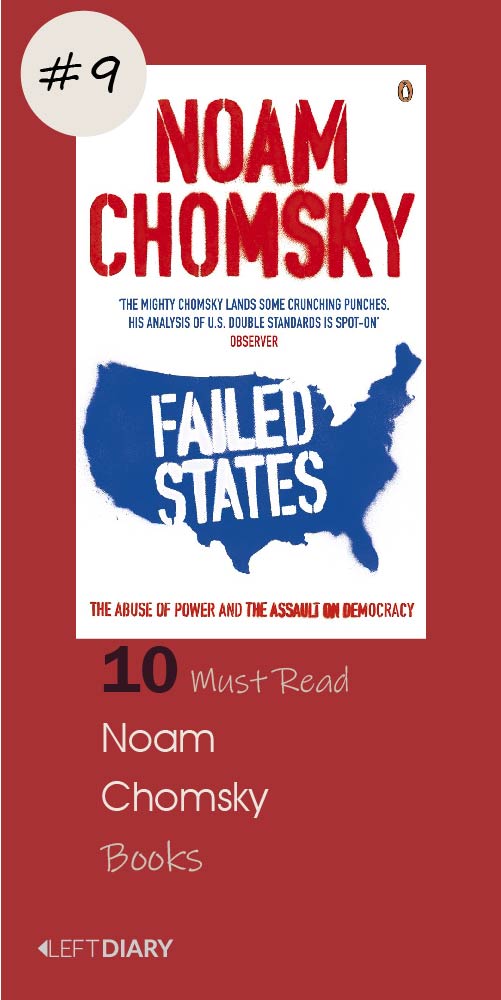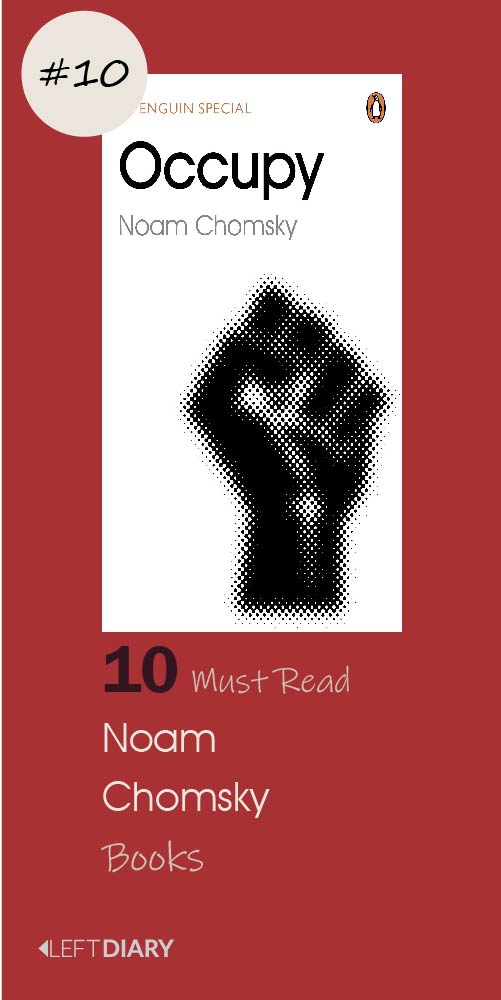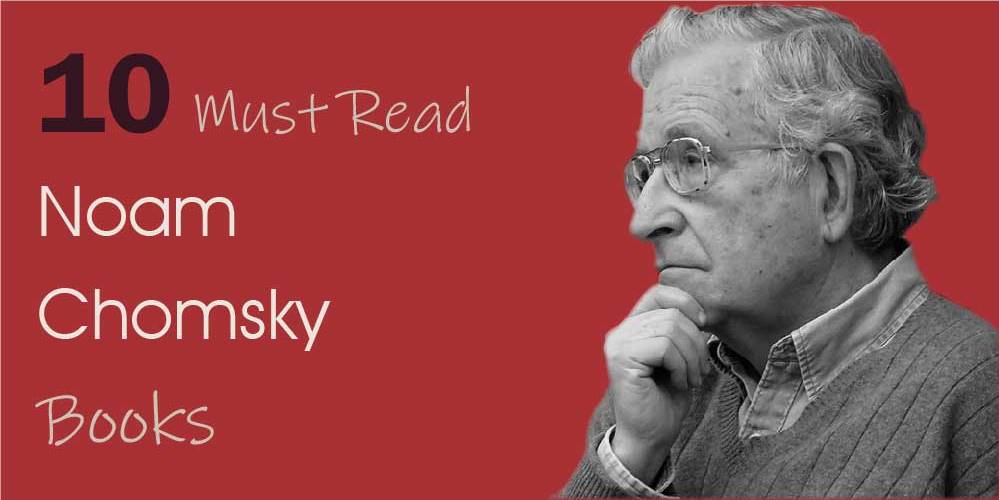
10 Must Read Noam Chomsky Books
Noam Chomsky is the most cited scholars alive. Chomsky is the leading critic of US foreign policy, neoliberalism and contemporary state capitalism, and the mainstream media. Chomsky is also known as The father of Modern Linguistics. Chomsky is linguist, cognitive scientist, philosopher, historian, social critic, and political commentator. He has authored over 100 books on the topics such as linguistics, war, politics, and mass media. Chomsky is an Anarcho-syndicalist and a Libertarian Socialist. Following are the 10 must read books if are a beginner and new to Noam Chomsky's writings.
1. Requiem for the American Dream
In his first major book on the subject of income inequality, Noam Chomsky skewers the fundamental tenets of neoliberalism and casts a clear, cold, patient eye on the economic facts of life. What are the ten principles of concentration of wealth and power at work in America today? They're simple enough: reduce democracy, shape ideology, redesign the economy, shift the burden onto the poor and middle classes, attack the solidarity of the people, let special interests run the regulators, engineer election results, use fear and the power of the state to keep the rabble in line, manufacture consent, marginalize the population. In Requiem for the American Dream, Chomsky devotes a chapter to each of these ten principles, and adds readings from some of the core texts that have influenced his thinking to bolster his argument.
Get the Book2. The Responsibility of Intellectuals
As a nineteen-year-old undergraduate in 1947, Noam Chomsky was deeply affected by articles about the responsibility of intellectuals written by Dwight Macdonald, an editor of Partisan Review. Twenty years later, as the Vietnam War was escalating, Chomsky turned to the question himself, noting that “intellectuals are in a position to expose the lies of governments” and to analyze their “often hidden intentions.
Get the Book3. Understanding Power
In a series of enlightening and wide-ranging discussions, all published here for the first time, Chomsky radically reinterprets the events of the past three decades, covering topics from foreign policy during Vietnam to the decline of welfare under the Clinton administration. And as he elucidates the connection between America's imperialistic foreign policy and the decline of domestic social services, Chomsky also discerns the necessary steps to take toward social change. With an eye to political activism and the media's role in popular struggle, as well as U.S. foreign and domestic policy, Understanding Power offers a sweeping critique of the world around us and is definitive Chomsky. Characterized by Chomsky's accessible and informative style, this is the ideal book for those new to his work as well as for those who have been listening for years.
Get the Book4. Who Rules the World
In a series of enlightening and wide-ranging discussions, all published here for the first time, Chomsky radically reinterprets the events of the past three decades, covering topics from foreign policy during Vietnam to the decline of welfare under the Clinton administration. And as he elucidates the connection between America's imperialistic foreign policy and the decline of domestic social services, Chomsky also discerns the necessary steps to take toward social change. With an eye to political activism and the media's role in popular struggle, as well as U.S. foreign and domestic policy, Understanding Power offers a sweeping critique of the world around us and is definitive Chomsky. Characterized by Chomsky's accessible and informative style, this is the ideal book for those new to his work as well as for those who have been listening for years.
Get the Book5. Manufacturing Consent
Based on a series of case studies—including the media’s dichotomous treatment of “worthy” versus “unworthy” victims, “legitimizing” and “meaningless” Third World elections, and devastating critiques of media coverage of the U.S. wars against Indochina—Herman and Chomsky draw on decades of criticism and research to propose a Propaganda Model to explain the media’s behavior and performance. Their new introduction updates the Propaganda Model and the earlier case studies, and it discusses several other applications. These include the manner in which the media covered the passage of the North American Free Trade Agreement and subsequent Mexican financial meltdown of 1994-1995, the media’s handling of the protests against the World Trade Organization, World Bank, and International Monetary Fund in 1999 and 2000, and the media’s treatment of the chemical industry and its regulation. What emerges from this work is a powerful assessment of how propagandistic the U.S. mass media are, how they systematically fail to live up to their self-image as providers of the kind of information that people need to make sense of the world, and how we can understand their function in a radically new way.
6. Profit over people
Why is the Atlantic slowly filling with crude petroleum, threatening a millions-of-years-old ecological balance? Why did traders at prominent banks take high-risk gambles with the money entrusted to them by hundreds of thousands of clients around the world, expanding and leveraging their investments to the point that failure led to a global financial crisis that left millions of people jobless and hundreds of cities economically devastated? Why would the world’s most powerful military spend ten years fighting an enemy that presents no direct threat to secure resources for corporations? The culprit in all cases is neoliberal ideology—the belief in the supremacy of "free" markets to drive and govern human affairs. And in the years since the initial publication of Noam Chomsky’s Profit Over People: Neoliberalism and Global Order, the bitter vines of neoliberalism have only twisted themselves further into the world economy, obliterating the public’s voice in public affairs and substituting the bottom line in place of people’s basic obligation to care for one another as ends in themselves. In Profit Over People, Chomsky reveals the roots of the present crisis, tracing the history of neoliberalism through an incisive analysis of free trade agreements of the 1990s, the World Trade Organization, and the International Monetary Fund—and describes the movements of resistance to the increasing interference by the private sector in global affairs. In the years since the initial publication of Profit Over People, the stakes have only risen. Now more than ever, Profit Over People is one of the key texts explaining how the crisis facing us operates—and how, through Chomsky’s analysis of resistance, we may find an escape from the closing net.
7. On Anarchism
On Anarchism is an essential introduction to the Noam Chomsky's political theory. On Anarchism sheds a much needed light on the foundations of Chomsky's thought, specifically his constant questioning of the legitimacy of entrenched power. The book gathers his essays and interviews to provide a short, accessible introduction to his distinctively optimistic brand of anarchism. Refuting the notion of anarchism as a fixed idea, and disputing the traditional fault lines between anarchism and socialism, this is a book sure to challenge, provoke and inspire. Profoundly relevant to our times, it is a touchstone for political activists and anyone interested in deepening their understanding of anarchism, or of Chomsky's thought.
In this classic talk delivered at the Poetry Center, New York, on February 16, 1970, Noam Chomsky articulates a clear, uncompromising vision of social change. Chomsky contrasts the classical liberal, libertarian socialist, state socialist, and state capitalist world views and then defends a libertarian socialist vision as "the proper and natural extension . . . of classical liberalism into the era of advanced industrial society."
In his stirring conclusion Chomsky argues, "We have today the technical and material resources to meet man’s animal needs.We have not developed the cultural and moral resources or the democratic forms of social organization that make possible the humane and rational use of our material wealth and power. Conceivably, the classical liberal ideals as expressed and developed in their libertarian socialist form are achievable. But if so, only by a popular revolutionary movement, rooted in wide strata of the population and committed to the elimination of repressive and authoritarian institutions, state and private. To create such a movement is a challenge we face and must meet if there is to be an escape from contemporary barbarism."
9. Failed Sate
The United States has repeatedly asserted its right to intervene militarily against "failed states" around the globe. Noam Chomsky turns the tables, charging the United States with being a "failed state", and therefore a danger to its own people and the world.
"Failed states", Chomsky writes, are those "that do not protect their citizens from violence and perhaps even destruction, that regard themselves as beyond the reach of domestic or international law, and that suffer from a 'democratic deficit', having democratic forms but with limited substance." Exploring recent U.S. foreign and domestic policies, Chomsky assesses Washington's escalation of nuclear risks; the dangerous consequences of the occupation of Iraq; and Americas' self-exemption from international law. He also examines an American electoral system that frustrates genuine political alternatives, thus impeding any meaningful democracy.
Forceful, lucid, and meticulously documented, Failed States offers a comprehensive analysis of a global superpower that has long claimed the right to reshape other nations while its own democratic institutions are in severe crisis, and its policies and practices recklessly place the world on the brink of nuclear and environmental disaster. Systematically dismantling America's pretense of being the world's arbiter of democracy, Failed States is Chomsky's most focused, and urgent, critique to date.
10. Occupy
In Occupy, Chomsky explores both the context to the Occupy movement, and highlights its primary aims. He describes it as a reaction by members of the working and middle classes to the "class war" that has been waged against them by the upper class who control the commercial sector since the 1970s. During those 30 years, Chomsky argues, the nation's wealth has become increasingly concentrated among a tiny percentage of the population, primarily those in control of the financial sector. Chomsky argues that this process has been furthered by government policies implemented by both the Republican and Democrat administrations, with both parties being financed by that same financial and commercial sector. According to Chomsky, while the wealth has been increasingly focused in the socio-economic elite who control the financial sector, the rest of the population have suffered higher workloads, unsustainable debt, a weakening benefits system and stagnating incomes and real wages, causing them to be "angry, frustrated, [and] bitter". It is this inequality – Chomsky argues – that has led to the Occupy movement.
Chomsky states that the Occupy movement's demands are those of the majority of the U.S. population: to solve the problem of social inequality in the country. More specifically, he argues that their precise demands include greater regulation of financial transaction taxes, and reversing the rules of corporate governance that have led to the current situation. Nonetheless, he also argues that many Occupy members would be hesitant to directly state what their objectives are, because "they are essentially crafting a point of view from many disparate sources."

